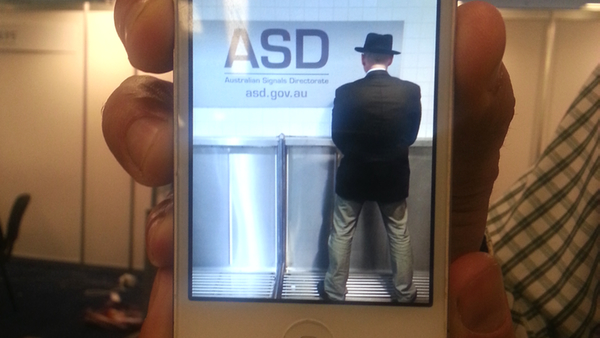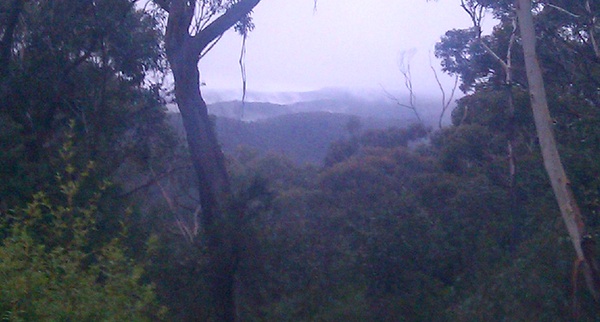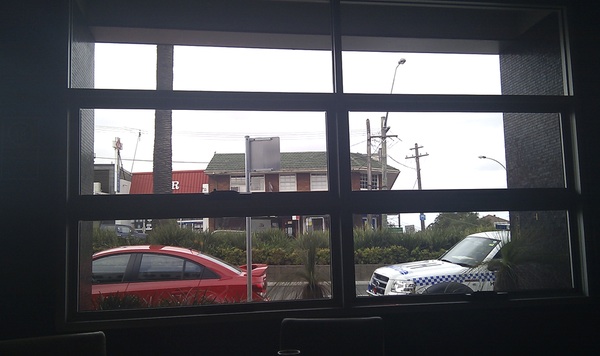[Update 14 October 2013, 0800 AEDT: As foreshadowed, “The Week Ahead” has been fleshed out with the current version of The Plan. However there’s evidence to suggest that this might change again later today. Update 15 October 2013, 1915 AEDT: The plan has changed again.]
 My week Monday 7 to Sunday 13 October 2013 was relatively busy, although more on the research and information-gathering side rather than the final output side.
My week Monday 7 to Sunday 13 October 2013 was relatively busy, although more on the research and information-gathering side rather than the final output side.
Podcasts
- Corrupted Nerds: Conversations 6, being a chat with Michael Smith, head of Akamai Technologies’ computer security incident response team (CSIRT) about distributed denial of service (DDoS) attacks.
Articles
- Tech boom? Innovation drives Newcastle’s (slow) renewal, Crikey, 7 October 2013, being my write-up of the DiG Festival.
- Internet use: we’re more mobile, but we still need a cable, Crikey, 9 October 2013, being my response to the latest internet usage figures from the Australian Bureau of Statistics (ABC).
I also wrote my usual column for ZDNet Australia, The Full Tilt, but we’re currently waiting on a decision as to whether the planned headline is, um, pushing the boundaries.
Media Appearances
- On Monday I spoke about Tor and Silk Road on ABC Local Radio across New South Wales.
- On Sunday, I was a guest for the recording of this week’s Reckoner podcast.
Corporate Largesse
- On Wednesday I went to a lunchtime briefing by Unisys at Wolfies Restaurant at Circular Quay — apparently it doesn’t have an apostrophe — where the food was lovely and the weather was gorgeous. They paid, of course.
- On Thursday I went to the annual conference of the Australian Information Security Association (AISA) at the Sydney Convention & Exhibition Centre, where I was fed and watered. Check Point Software Technologies Ltd gave me a branded shirt. Watchguard Technologies Inc gave me a novelty USB memory device (4GB) packed with PR material.
The Week Ahead
The exact shape of the week will depend upon news arriving overnight, so I’ll add in the details tomorrow morning.
On Monday I’ll be mapping out the coming three weeks or so, including preparing some of plan for getting to Melbourne for the Breakpoint and Ruxcon hacker conferences. On Tuesday I’ll be continuing that work towards Melbourne and writing a piece for Technology Spectator that’ll due to be published on Thursday Friday.
On Wednesday I’ll be setting up the framework for another Technology Spectator yarn, as well as writing my ZDNet Australia column for Thursday.
On Wednesday I’ll be heading to Sydney for a lunchtime briefing by Dasault Systèmes about their new SolidWorks thingo, setting up the frameworks for Technology Spectator and ZDNet Australia stories en route. I may stay in Sydney overnight, depending on several factors. If I don’t…
On Thursday itself, I’ll be heading to Sydney again for a lunchtime briefing by NEC and Telsyte, staying overnight until Friday for a tour of the Pacnet data centre and some personal stuff.
There’s more in the schedule than that, of course, but they’re the relatively fixed pegs upon which the rest of the schedule hangs.
The weekend is currently unplanned.
[Photo: Not the ASD, photographed at the annual conference of the Australian Information Security Association (AISA) in Sydney on 10 October 2013. The signage for the Australian Signals Directorate (ASD), formerly the Defence Signals Directorate (DSD), seems to have gone astray…]



